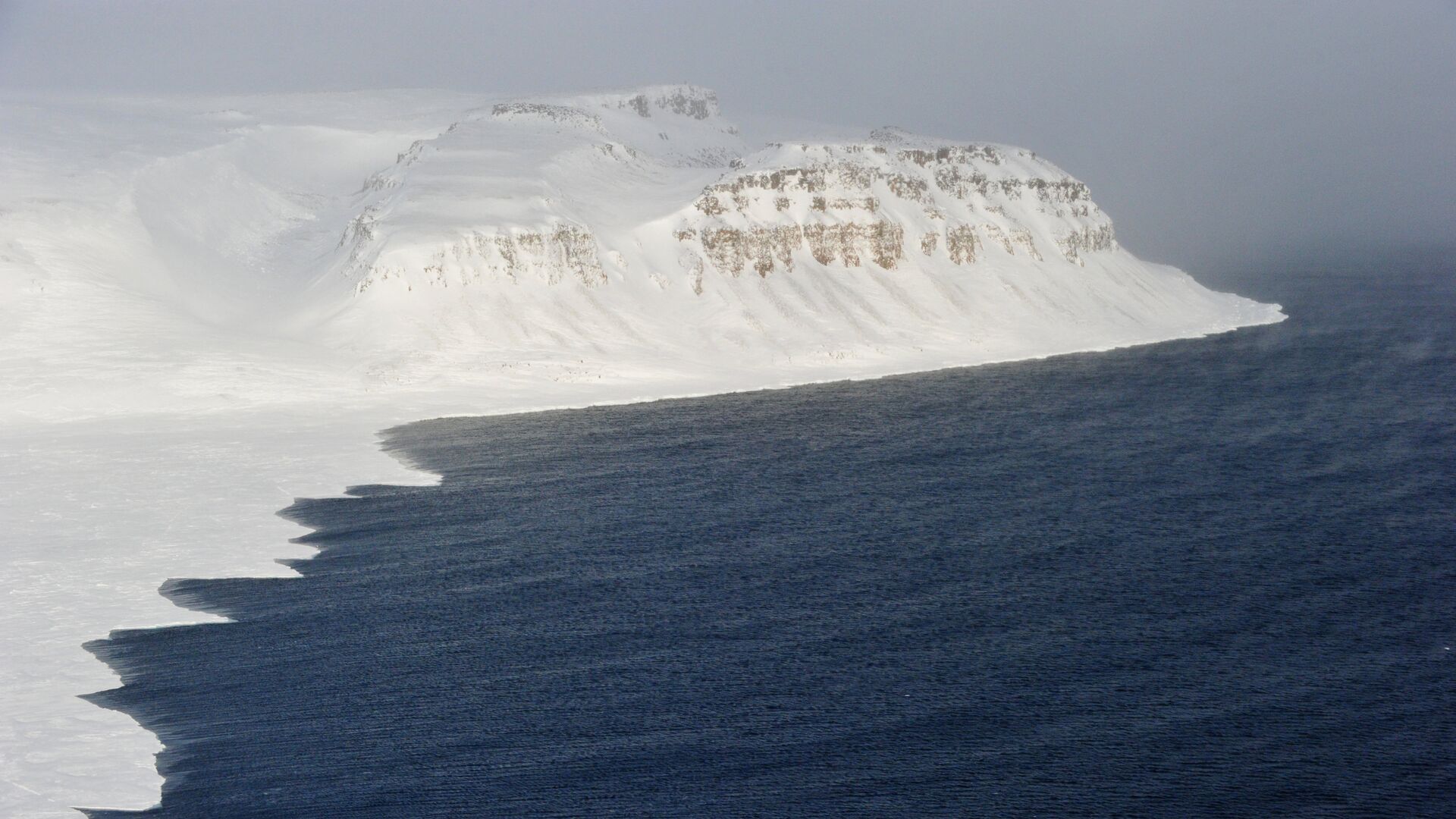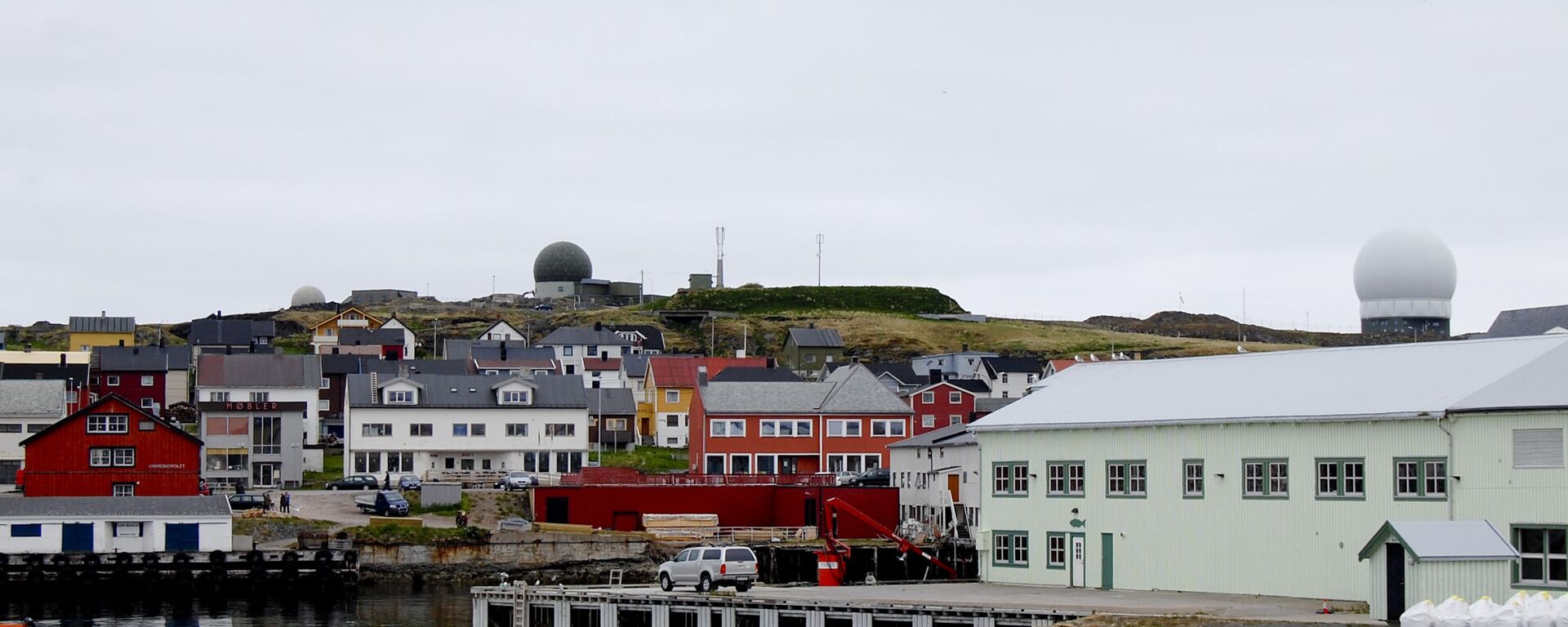https://sputnikglobe.com/20230616/norwegian-military-betting-on-arctic-drones-to-maintain-sovereignty-1111204453.html
Norwegian Military Betting on Arctic Drones to Maintain Sovereignty
Norwegian Military Betting on Arctic Drones to Maintain Sovereignty
Sputnik International
While admittedly "far behind", Norway bets on Arctic-adapted drones, with experts predicting that the era of manned combat aircraft may be approaching its end.
2023-06-16T08:56+0000
2023-06-16T08:56+0000
2023-06-16T08:56+0000
military
norway
arctic
black hornet nano
military & intelligence
drone
https://cdn1.img.sputnikglobe.com/img/105133/79/1051337980_0:0:3077:1731_1920x0_80_0_0_8ba4be4bc83520825e64215c808f18d9.jpg
The Norwegian military is in the process of developing drones adapted for harsh weather conditions in the Arctic.As of today, there are several drone projects underway in several parts of the Norwegian Armed Forces. Norway's chief of Defense, Eirik Kristoffersen, has suggested concentrating all the projects on the island of Andoya in the northern part of the country - where there is already an air base and space center - so that unmanned aircraft may better meet the military's demands and withstand the freezing Arctic conditions with strong winds and ice."We must have drones that can monitor - and, in the future, even transport - things. But also drones that can deliver weapons. Technology moves very quickly and there are drones that today are weapons in themselves," Kristoffersen told Norwegian media, calling Andoya "a good starting point".Norway's military stressed the importance of maintaining sovereignty in the north. It also cited the recent Ukraine conflict which showed that drones have become an important part of modern warfare, having been used for reconnaissance, as weapons and to search for wounded soldiers on both sides.Colonel Kenneth Orland, head of the air operational inspectorate, called it "geostrategically correct" to concentrate testing and development of drones on Andoya. He called the drones a "good resource", stressing that a drone can be in the air for up to 40 hours, and it is cheaper to train a drone pilot than a fighter pilot.Gunnar Jan Olsen, general manager of Andoya Space Defence, argued that Norway is "far behind" in developing drones both for monitoring and area control, and offensive operations.Norway doesn't have any armed drones. Furthernore, the acquisitions plan for the Norwegian Defense from 2017 to 2025 doesn't indicate the acquisition of drones in the near future. A government-appointed expert panel has also voiced ethical concerns over the use of attack drones, which were subsequently echoed by the government itself.However, Norway does produce and operate drones of various sizes, including the famed Black Hornet Nano, a minuscule hand-held drone, which has been bought by several countries including the US and the UK.
https://sputnikglobe.com/20230526/norway-setting-up-new-radar-chain-dubbed-natos-eyes-in-the-north-1110597542.html
norway
arctic
Sputnik International
feedback@sputniknews.com
+74956456601
MIA „Rossiya Segodnya“
2023
News
en_EN
Sputnik International
feedback@sputniknews.com
+74956456601
MIA „Rossiya Segodnya“
Sputnik International
feedback@sputniknews.com
+74956456601
MIA „Rossiya Segodnya“
arctic drones, manned combat aircraft, unmanned combat aircraft, harsh arctic climate, military acquisition
arctic drones, manned combat aircraft, unmanned combat aircraft, harsh arctic climate, military acquisition
Norwegian Military Betting on Arctic Drones to Maintain Sovereignty
Norway at present doesn't have any armed drones and has been estimated to be "far behind" in developing military UAVs. However, it runs several programs of Arctic-adapted drones, with experts predicting that the era of manned combat aircraft may be approaching its end.
The Norwegian military is in the process of developing drones adapted for harsh weather conditions in the Arctic.
As of today, there are several drone projects underway in several parts of the Norwegian Armed Forces. Norway's chief of Defense, Eirik Kristoffersen, has suggested concentrating all the projects on the island of Andoya in the northern part of the country - where there is already an air base and space center - so that unmanned aircraft may better meet the military's demands and withstand the freezing
Arctic conditions with strong winds and ice.
"We must have drones that can monitor - and, in the future, even transport - things. But also drones that can deliver weapons. Technology moves very quickly and there are drones that today are weapons in themselves," Kristoffersen told Norwegian media, calling Andoya "a good starting point".
Norway's military stressed the importance of maintaining sovereignty in the north. It also cited the recent Ukraine conflict which showed that drones have become an important part of modern warfare, having been used for reconnaissance, as weapons and to search for wounded soldiers on both sides.
Colonel Kenneth Orland, head of the air operational inspectorate, called it "geostrategically correct" to concentrate testing and development of drones on Andoya. He called the drones a "good resource", stressing that a drone can be in the air for up to 40 hours, and it is cheaper to train a drone pilot than a fighter pilot.
Gunnar Jan Olsen, general manager of Andoya Space Defence, argued that Norway is "far behind" in developing drones both for monitoring and area control, and offensive operations.
"Drone technology will only accelerate. I can say with certainty that Norway has bought its last combat aircraft operated by a pilot," he said, referring to the country's fleet of 52 F-35s at present touted as the backbone of the national defense. "What is special about today's drone technology is that no drones are designed specifically for the Arctic climate. We must acquire more expertise, and more advanced testing," Olsen added.
Norway doesn't have any armed drones. Furthernore, the
acquisitions plan for the Norwegian Defense from 2017 to 2025 doesn't indicate the acquisition of drones in the
near future. A government-appointed expert panel has also voiced ethical concerns over the use of attack drones, which were subsequently echoed by the government itself.
However, Norway does produce and operate drones of various sizes, including the famed Black Hornet Nano, a minuscule hand-held drone, which has been bought by several countries including the US and the UK.



